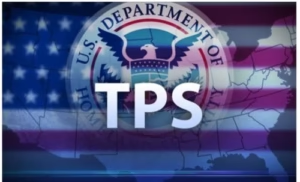In a move affecting more than 300,000 Venezuelans, the U.S. Supreme Court gave the Trump administration the green light to terminate their temporary legal protections under the TPS program.
By freezing a federal district court ruling, the high court is allowing the White House to move forward with winding down the program for this population, according to CBS News. This action links the Supreme Court’s latest decision to previous legal developments.
In the unsigned order, the Supreme Court wrote: “Although the posture of the case has changed, the parties’ legal arguments and relative harms generally have not. The same result that we reached in May is appropriate here,” as reported by CBS News. The May order had similarly allowed the administration to proceed with ending TPS while litigation continued.
Justices Elena Kagan and Sonia Sotomayor said they would have denied the administration’s request for emergency relief, and Justice Ketanji Brown Jackson dissented. “We once again use our equitable power (but not our opinion-writing capacity) to allow this Administration to disrupt as many lives as possible, as quickly as possible. I view today’s decision as yet another grave misuse of our emergency docket,” Jackson wrote in a dissenting opinion. Their objection emphasized the desire to maintain work permits for the affected Venezuelan citizens during litigation, highlighting the potential humanitarian and economic impact of the decision.
What are the order changes?
With this stay, the Supreme Court neutralizes the effect of a September ruling by U.S. District Judge Edward Chen, who found that the Department of Homeland Security (DHS) had illegally ended TPS for Venezuelans. As a result, the executive branch can continue eliminating protections that allowed beneficiaries to live and work in the United States without the threat of immediate removal. This is the second time the high court has green-lit DHS’s move “to strip hundreds of thousands of Venezuelans of their temporary legal protections,” CBS News noted.
That same judge also issued a decision in favor of Haitian TPS beneficiaries, but the Trump administration did not appeal that ruling.
Looking ahead, this case could return to Judge Edward Chen in the coming months, given that Haitian TPS is set to expire in February. The government’s forthcoming decision regarding TPS for Haitians is expected within roughly two months, tying together ongoing and potential judicial proceedings.
Politically, DHS hailed the order as “a win for the American people and common sense.” The agency added: “Temporary Protected Status was always supposed to be just that: Temporary. Yet, previous administrations abused, exploited, and mangled TPS into a de facto amnesty program.”
In seeking the stay, Solicitor General D. John Sauer argued that the district court could not review Homeland Security Secretary Kristi Noem’s decision to cancel a TPS extension for Venezuela and then revoke the country’s designation. In his filing, he said the district court’s ruling “impedes important immigration enforcement policies” by allowing 300,000 Venezuelan migrants to remain despite the secretary’s determination that doing so is “contrary to the national interest.” He also faulted Judge Chen for disregarding the Supreme Court’s authority: “Lower courts cannot treat this Court’s orders as good for only one stage of only one case by gesturing at irrelevant distinctions, subjectively grading the persuasiveness of the Court’s perceived reasoning, or faulting the Court’s terseness.”
Judge Chen, for his part, had concluded that the Court’s May order— which had already allowed the administration to end TPS while litigation continued — lacked “any specific rationale” and did not prevent him from deciding the case on the merits. In his ruling, he wrote: “This case arose from action taken post haste by the current DHS Secretary, Kristi Noem, to revoke the legal status of Venezuelan and Haitian TPS holders, sending them back to conditions that are so dangerous that even the State Department advises against travel to their home countries. The Secretary’s action in revoking TPS was not only unprecedented in the manner and speed in which it was taken, but also violates the law.”
“Lives … upended,” plaintiffs say
On the ground, advocates for TPS holders denounced the immediate human consequences of the decision.
The National TPS Alliance, a plaintiff in the case, criticized Friday’s order. “It is heartbreaking that the justices rubber-stamped this administration’s unlawful cancellation of TPS. This decision will upend the lives of hundreds of thousands of law-abiding, hard-working TPS holders like myself,” said Cecilia Gonzalez, a plaintiff and member of the Alliance who has lived in the U.S. since 2017, in a statement.
CBS News noted that the stay request is the latest instance in which the executive branch has accused lower courts of ignoring Supreme Court directives from earlier stages of litigation. This connects the current legal proceedings to patterns established earlier in the case, such as the May order, which had already allowed the administration to end TPS for Venezuelans while the case proceeded, before Judge Chen ruled on the merits last month in the opposite direction.
TPS at a glance, and the timeline of decisions
Congress created TPS in 1990 to provide nationals of countries affected by wars, natural disasters, or other “extraordinary and temporary” conditions with protection from removal and work authorization for up to 18 months, renewable. As CBS News notes, the Biden administration designated Venezuela for TPS in March 2021, then extended that designation. In the subsequent administration, this extension was reversed.
After the second Trump administration took office, Secretary Kristi Noem canceled her predecessor’s extension and then rescinded the program for Venezuela, finding that allowing migrants to remain temporarily in the United States would be “contrary to the national interest.” According to the government’s argument, as reported by CBS News, TPS has enabled a significant number of Venezuelans without a path to permanent legal status to settle in the U.S., straining local resources.
The Supreme Court’s order is not a decision on the merits, but it allows the executive to continue implementing its policy while the litigation plays out.
In the meantime, the suspension of protections exposes hundreds of thousands of people to the loss of work authorization and the resumption of removal proceedings, according to CBS News.

Source: CBS News







